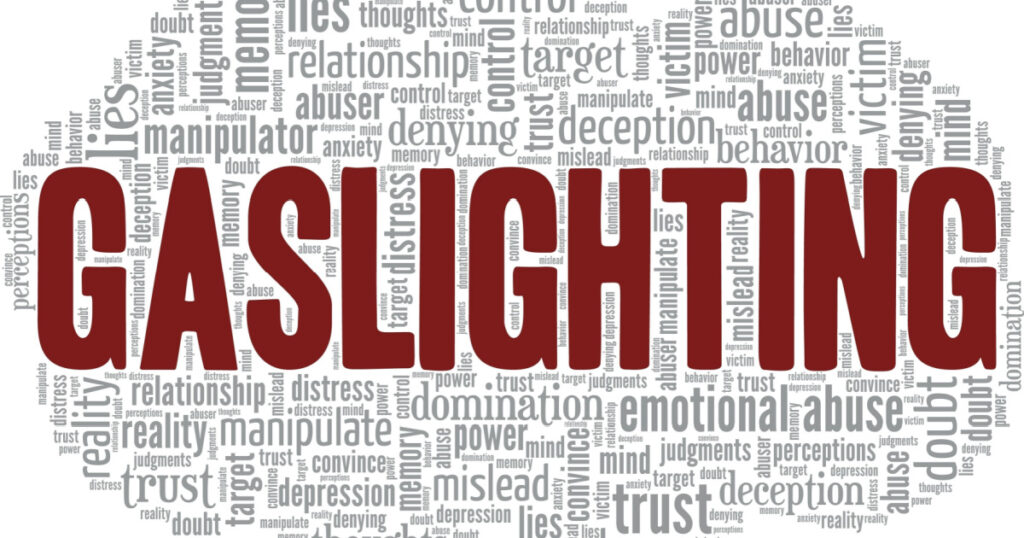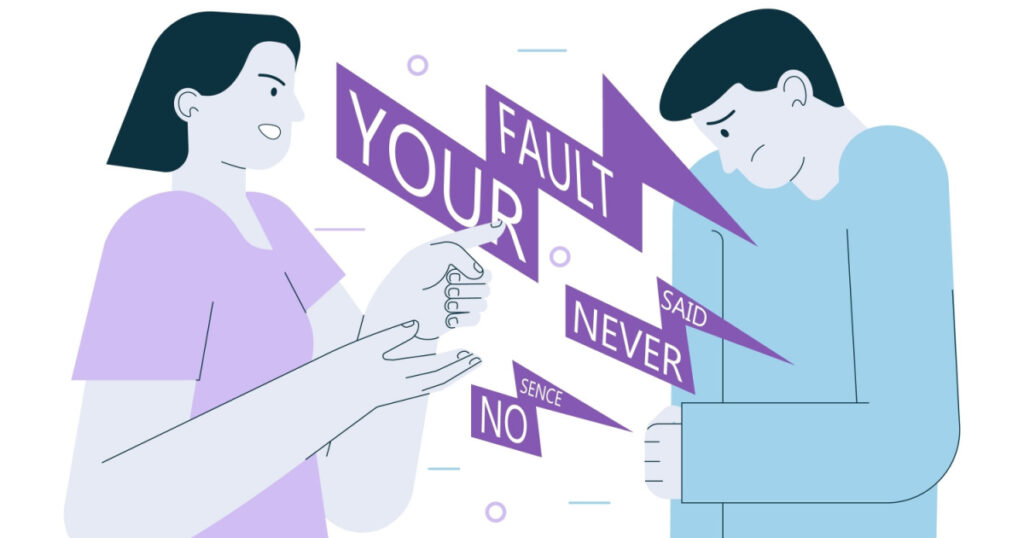What is gaslighting? Gaslighting is a form of control and abuse where an individual, whether it’s your partner, employer, or close friend, employs tactics such as manipulation and distraction to distort reality—making you doubt your idea of truth. Would you recognize gaslighting phrases if someone addressed you with one? It may be hard to identify, but its impact is deep. Its bad effects show when a person damages your sense of reality. It traps you in a lost space where blaming yourself becomes general, even without clear evidence of fault.
Where does the phrase ‘gaslight‘ come from?

The term “gaslighting” stems from a play and ensuing 1944 movie titled “Gaslight,” where a husband labors to convince his wife of her insanity. One of his tactics is dimming the gas-powered lights in their home and, when asked, claims that they remain bright. Gaslighting is not limited to specific relationships; it can show in various ways, including employer-employee dynamics, parent-child relationships, and relations among friends and family.
Read: “Gaslighting”: A Mind Game That Abusers Use To Make Their Victims Feel Crazy
However, it is most commonly seen in romantic relationships

Gaslighting is a mental or emotional abuse that can be just as harmful to the victim as physical violence, such as hitting or punching. Individuals who have experienced gaslighting have said that the emotional toll can feel even more severe than physical abuse. This is because, in the latter, the wounds are visible, and the perpetrator is known to them. Emotional abuse, including the use of gaslighting phrases, is more prevalent than one might realize. The Centers for Disease Control and Prevention reports that over 43 million women and 38 million men will face mental or emotional abuse from an intimate partner. Gaslighting stands out as one among various forms of emotional abuse. Gaslighting involves making you question your memories and experiences, replacing them with the gaslighter’s fabricated version. Do you recognize any of these gaslighting phrases? For instance:
Denying statements:

“I never said that. You have a terrible memory.”
Dismissing emotions:

“You’re too sensitive!” – normal reactions are shown as dramatic.
Read: 40 Things To Expect If You Marry A Narcissist
Criticizing appearance:

“You need to lose weight.” – aiming to make you dependent on them for validation.
Isolating from loved ones:

“Your friends are idiots.” – gaslighters attempt to cut off your connections.
Blaming your performance:

“You’re frigid and bad in bed.” – often used as a distraction from their actions.
Denying anger:

“I’m not angry. What are you talking about?” – using the silent treatment for control.
Using love as a weapon:

“If you really loved me, you would…” – manipulating affection to excuse bad behavior.
Shifting blame:

“It’s your fault I cheated.” – gaslighters turn conversations to blame the victim.
Read: 8 Signs Someone Might Be Manipulating You
Blaming for emotions:

“You make me furious.” – holding you responsible for their feelings.
Undermining self-worth:

“No one else would ever love you.” – playing off fears of being unlovable.
Exploiting beliefs:

“You’re supposed to love me unconditionally.” – using beliefs against you.
Manipulating memories:

“I remember you agreed to do that.” – replacing your memories with theirs. One of the most common gaslighting phrases.
Demanding forgiveness:

“If you’re lucky, I’ll forgive you.” – making you beg for forgiveness.
Alienating with criticism:

“This is why no one likes you.” – manipulating to isolate you.
Controlling choices:

“You look terrible in red. You should never wear it.” – claiming control over your life.
Read: Emotional Manipulation: 7 Lines That People Use To Control Others You Should Be Aware Of
Accusing of gaslighting:

“You’re gaslighting me!” – ironically, accusing you to deflect attention.
The Bottom Line

Recognizing gaslighting phrases is crucial. Respond by focusing on your feelings and setting limits. Gaslighters may resist, and walking away might be necessary, needing careful planning to ensure safety, including seeking support from loved ones or therapists.
Keep Reading: Studies Show Anxiety Disorders May Be Caused By Exposure To Narcissistic Abuse
H/t The Healthy

